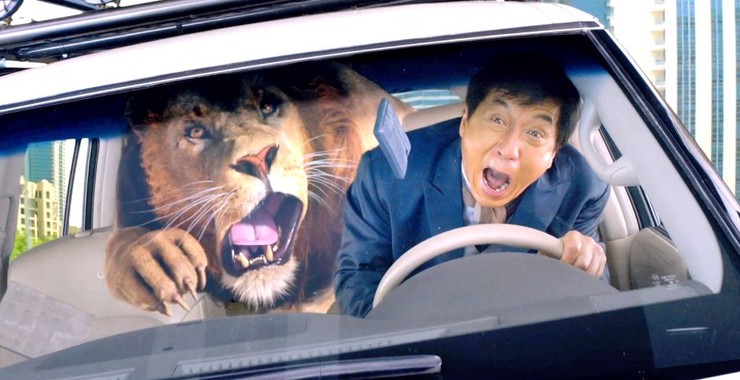


The plot-light nature of "Bleeding Steel" wouldn't be so vexing if the film's tone and story didn't seemingly shift at random. All we know is that it has something to do with an incident 13 years ago-foregrounded during the film's noisy but otherwise forgettable opening scene-involving Andrew, Lin, Lin's leukemia-afflicted daughter Xixi, and a mysterious cyborg heart created by cutting edge scientist Dr. It's often hard to tell what motivates these characters beyond a blind need to protect each other from the slings and bullets of the pale and punchy villainess known only as " The Woman in Black" ( Tess Haubrich) and her colleague, the domineering, cybernetically enhanced martial artist Andrew ( Callan Mulvey). "Why 'Bleeding Steel'?" is a question that I asked myself (in so many words) multiple times as I watched Special Agent Dong Lin (Chan) chase around an amnesiac heroine (Taiwanese pop star Nana Ouyang) and her equally mysterious traveling companion Sen Li (Show Lo, also a Taiwanese pop star) for. It's almost as if "Bleeding Steel" was either forgotten by American filmgoers and/or actively scrubbed by American distributors because, uh, well, let's try to solve that mystery together. In fact, if you look at either the film's Internet Movie Database or Wikipedia pages, you will find no mention of the film's sliver of a 2017 American release (I do, however, have emails from December to this effect, not to mention the iron-clad proof of a handful of stray tweets).

Lionsgate's faith in "Bleeding Steel" could be a tentative step in the right direction, though their reasons for singling out this Australia-set superhero/scifi-comedy dud are-at this moment in time and based largely on the film's quality-mystifying. (The film's American publicists claim that Lionsgate's July release of "Bleeding Steel" "is not a re-release" since they are repping an English-dubbed version of the film while the "Chinese" language cut originally screened in America this past December.) To be fair: the film was not initially distributed in America by Lionsgate, but rather Chinese distributors United Entertainment Partners. It's a sad fact that American film distributors consider Asian movies-even record-breaking blockbusters like " Wolf Warrior 2" and " Baahubali 2: The Conclusion"-to be niche imports. American companies, like Sony Pictures and the Weinstein Company in the past, either bury or negligibly release most Asian films that are distributed here in America because they think that these films do not have an audience worth pitching to beyond native language speakers.Ĭase in point: Lionsgate Premiere is now re-releasing "Bleeding Steel," the last of Hong Kong super-star Jackie Chan's four 2017 titles, after dumping the film in a handful of US theaters last December (including Manhattan's Loews 34th Street 14).


 0 kommentar(er)
0 kommentar(er)
